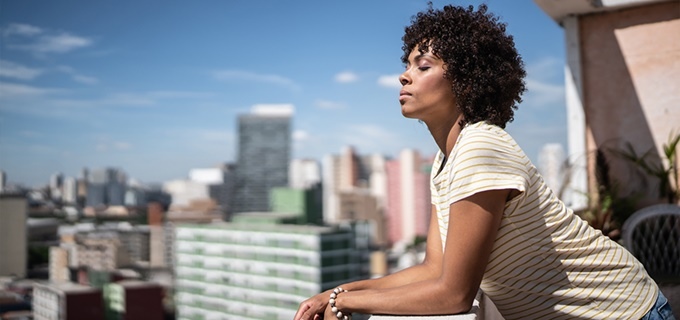Search for a doctor or hospital in your network.


Search for a doctor or hospital in your network.

Get News & Updates Directly To Your Inbox
 Your lungs help you breathe. But they do much more. They help you fight infections. They help your other organs work. They do so much for your overall health — and they need your protection.
Your lungs help you breathe. But they do much more. They help you fight infections. They help your other organs work. They do so much for your overall health — and they need your protection.Your lungs are easily harmed. Anything you breathe in can hurt them. Take time to learn about these threats and how to protect your lungs.
Potential dangers to your lungs are all around you — at home, outside or at work. The American Lung Association says air pollution, secondhand smoke and chemicals used at home or at work can cause or worsen lung disease.
The biggest outdoor danger to lungs is air pollution. It can come from vehicles, power tools, burning wood or trash, and wildfires. The American Lung Association offers 10 tips for protecting yourself and your family from unhealthy air. ![]()
Indoor dangers include:
Radon, pesticides and other outdoor pollutants that have gotten inside can also cause problems.
Take a house tour ![]() from the Environmental Protection Agency to learn more about specific indoor risks and how to keep them in check.
from the Environmental Protection Agency to learn more about specific indoor risks and how to keep them in check.
Lung cancer is the leading cause of cancer death for men and women in the U.S. Most people don't have symptoms until the cancer is advanced. But some symptoms ![]() of lung cancer include coughing, wheezing and chest pain.
of lung cancer include coughing, wheezing and chest pain.
Smoking causes the majority of lung cancers — both in smokers and in people exposed to secondhand smoke, says the Mayo Clinic. ![]()
What Are the Risk Factors?
Risk factors for lung cancer include:
Lung Cancer Screening
Screening for lung cancer can help catch cancer earlier, when it may be more treatable. But it isn’t recommended for everyone.
Lung cancer screening can have risks. So lung cancer screening is recommended only for adults who are at high risk for developing the disease because of their smoking history and age.
If you smoke now or used to and are over 50, talk to your doctor about lung cancer screening. And check your benefit plan to see what preventive services may be covered at no cost to you.*
Find out more from the Centers for Disease Control and Prevention. ![]()
Besides not smoking or vaping, many choices for better overall health are also good for your lung health:
There are many ways the air in your home can hurt your lungs. Take steps to help keep the air healthy:
Talk to your doctor if you have concerns about your lung health.
Blue Cross and Blue Shield of Montana, a Division of Health Care Service Corporation,
a Mutual Legal Reserve Company, an Independent Licensee of the Blue Cross and Blue Shield Association
© Copyright 2026 Health Care Service Corporation. All Rights Reserved.
Verint is an operating division of Verint Americas, Inc., an independent company that provides and hosts an online community platform for blogging and access to social media for Blue Cross and Blue Shield of Montana.
![]() File is in portable document format (PDF). To view this file, you may need to install a PDF reader program. Most PDF readers are a free download. One option is Adobe® Reader® which has a built-in screen reader. Other Adobe accessibility tools and information can be downloaded at https://www.adobe.com/trust/accessibility.html.
File is in portable document format (PDF). To view this file, you may need to install a PDF reader program. Most PDF readers are a free download. One option is Adobe® Reader® which has a built-in screen reader. Other Adobe accessibility tools and information can be downloaded at https://www.adobe.com/trust/accessibility.html. ![]()
![]() You are leaving this website/app ("site"). This new site may be offered by a vendor or an independent third party. The site may also contain non-Medicare related information. Some sites may require you to agree to their terms of use and privacy policy.
You are leaving this website/app ("site"). This new site may be offered by a vendor or an independent third party. The site may also contain non-Medicare related information. Some sites may require you to agree to their terms of use and privacy policy.
Powered by Verint